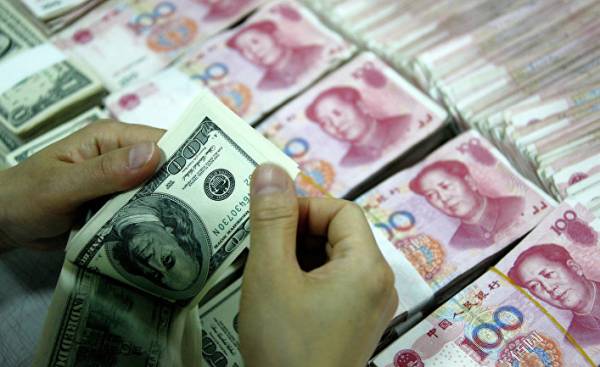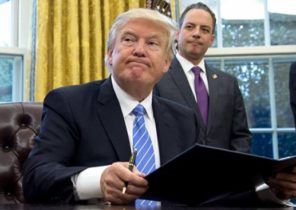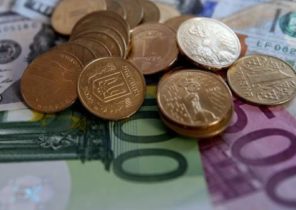
The financial market of America continues to be the most powerful and the greatest admiration in the world. Our economy is built on openness, freedom of opportunity, transparency in operations, as well as on the separation of government and industry. The strength and reliability of the economy of the United States are the Foundation of our national security.
Unfortunately, the American economic power at risk as a result of strategic, well-coordinated and state-sponsored Chinese investment in American financial institutions. Chinese investments in the financial sector increased significantly, and often they are determined by the priorities and goals of the Chinese government.
Assessment of the global investment trends is a complex business, but to protect the integrity of our economic system we must demand a careful study of the efforts of the Chinese government, aimed at the acquisition of financial institutions of the United States.
Some of the transactions indicate the interest the Chinese show in the us financial system, and the first one is the acquisition of affiliated with the Chinese company Chongqing Casin Enterprise Group (CCEG) of the Chicago stock exchange. 40 of our colleagues from the Congress, representing both parties, joined us and signed the letter addressed to our government, which contains an urgent request for a thorough inspection of this transaction.
The company CCEG works in several sectors of the Chinese market, where it is necessary to have a close relationship with the government, especially in such a sensitive area as the protection of the environment. Due to the lack of transparency in China is not possible to remove from the agenda the concerns about government influence on the CCEG, and this transaction will lead to the fact that the first control of the American stock exchange will be handed over to a Chinese firm. There are many potential risks.
Last month, immediately after the transaction, it was announced that a Chinese firm Ant Financial intends to purchase is located in the United States, the company MoneyGram, a leading global company for providing services in the field of remittances. Company Ant Financial reportedly wants to access the 2.4 million Bank accounts and accounts of mobile users.
The Chinese government is an important shareholder of the company Ant Financial, and he owns about 15% of the shares. If this transaction is approved, then the Chinese government will have access and information to financial markets and certain cash flows international consumers.
Since the Chinese government adopts more stringent measures against political, religious and human rights activists, we should make a thorough study of whether the network of the company of MoneyGram be used to suppress these votes.
A bipartisan Commission of the government and the Congress in China (Congressional-Executive Commission on China) in its latest report draws attention to the fact that the Chinese government “has become more daring in their extraterritorial activities” aimed at the harassment of journalists and human rights defenders abroad; it intimidates their families in China, as well as kidnapping of dissidents in Hong Kong and in Thailand. With the help of MoneyGram, the Chinese government will be able to use the information on remittances for carrying out acts of retribution against the families of dissidents and democratic activists, but also against those who help them.
Individual approved by the Congress on the Commission on monitoring economic issues and security issues in relations between the United States and Citem (U. S.-China Economic and Security Review Commission) recently held a bipartisan hearing about those risks that arise as a result of coordinated and state-supported Chinese investment. According to one expert whose opinion was submitted by the Rhodium Group, “China’s financial system is the dominance of the state, as well as the lack of rule of law can lead to the fact that part of the state is dominant, even if the firm is private.”
Another expert noted that Chinese investment in the us financial sector are part of a broader government-led and strategic efforts. He called these investments “a part of larger and more complex strategic mosaic”, which includes the penetration of key financial companies, and “control of Western investment syndicates.”
All this is a serious concern and could have significant implications for medium-term and long-term economic security and national security of the United States. When assessing a proposed investment by Chinese firms in the financial sector, we should seriously consider the associated strategic value they may have for the Chinese government. The opacity of the Chinese system, as well as a failed attempt to ensure the rule of law Western-style demand that we are subjected to the rigorous study of these transactions.
Based on this, some chairmen of committees and subcommittees of the house of representatives joined us and asked for a two-party test of our approval process for foreign investment through the audit chamber (Government Accountability Office). She, in particular, check the Committee on foreign investment in the United States (Committee on Foreign Investment in the United States), an interagency organization whose mission is to uphold the interest of the United States in the field of national security in terms of foreign investment, which are often carried out at the initiative of the state. This important test will provide objective information to Congress and the administration, and we, for our part, we continue to analyze the impact of rising Chinese global investment.
China is trying to become a party to the transaction that threaten the integrity of American markets, but the Chinese are closing their own markets and systematically deny access to them by foreigners. There is no reciprocity in this kind of transaction with the participation of American companies trying to penetrate into Chinese markets.
Although we should not cover all Chinese investment in the United States, our government, however, must consider each such transaction, fully aware at the same associated risks. We must work together to protect the economic principles of our country and we cannot afford to ignore the well-coordinated Chinese investments that target our critical financial infrastructure and which can undermine our fundamental strategic interests and values.
Mr. pittenger is a Congressman and Vice-Chairman of the Subcommittee on combating terrorism and illicit Finance of the house of representatives. Mr. Smith is the Congressman and senior member of the foreign Affairs Committee of the house of representatives and the Chairman of Joint Commission on China of the Congress and the Federal government.







